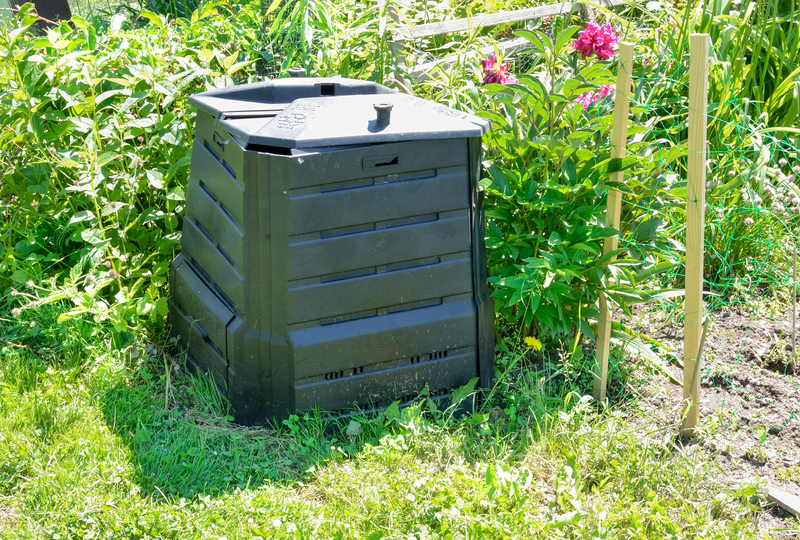Eco-Friendly Family: Easy Waste Reduction Tips
Posted on 02/05/2025
The world is currently facing a waste crisis, with millions of tons of garbage polluting our landfills and oceans. This problem affects everyone, from individual households to entire communities. However, each family can play a vital role in minimizing waste and promoting sustainability. By adopting a few straightforward, eco-friendly practices, you can significantly reduce your household waste footprint. This article offers a range of tips to help families contribute to a greener planet.
Understanding the Importance of Waste Reduction
Before diving into specific tips, it's essential to understand why waste reduction is crucial. Excess waste contributes to major environmental problems such as pollution, resource depletion, and climate change. When waste is not managed properly, it can harm wildlife, pollute water sources, and release harmful chemicals into the atmosphere. By reducing waste, you help to mitigate these issues, conserve resources, and create a healthier environment for future generations.

Adopt the 3 Rs: Reduce, Reuse, Recycle
The principles of "Reduce, Reuse, Recycle" are foundational for waste minimization. Here's how you can incorporate these practices into your daily life:
Reduce
Reducing waste starts with mindful consumption. Here are some strategies:
- Purchase products with minimal packaging.
- Buy in bulk to reduce the frequency of single-use packaging.
- Choose reusable items over disposable ones, such as cloth napkins over paper ones.
- Avoid impulse buys by planning your purchases carefully.
Reuse
Reusing items extends their life cycle and reduces the need for new products. Consider these ideas:
- Opt for reusable shopping bags, water bottles, and coffee cups.
- Repurpose glass jars and containers for storage.
- Buy second-hand clothing and furniture to give them a new lease on life.
- Engage in DIY projects to transform old items into something new and useful.
Recycle
Recycling helps turn waste into new products, reducing the need for raw materials. Here's how to recycle effectively:
- Sort your waste according to local recycling guidelines.
- Rinse recyclables to prevent contamination.
- Stay informed about what can and cannot be recycled in your area.
- Support products made from recycled materials.
Composting: Nature's Way of Recycling
Composting is an excellent method for recycling organic waste. By composting kitchen scraps and yard waste, you can reduce the amount of waste that goes to the landfill while creating nutrient-rich soil for your garden. To start composting:
- Set up a compost bin in your backyard or use a countertop compost collector for indoor use.
- Add a mixture of green materials (fruit and vegetable scraps, coffee grounds) and brown materials (dry leaves, paper).
- Turn the compost regularly to aerate it and speed up the decomposition process.
- Use the finished compost to enrich your garden soil and nourish your plants.
Food Waste Reduction Strategies
Food waste is a significant issue in many households. Here are some tips to minimize food waste:
- Plan meals and create shopping lists to avoid buying more than you need.
- Store food properly to extend its shelf life.
- Use leftovers creatively by incorporating them into new meals.
- Understand food labels and prioritize consuming items before they go bad.
Engaging Kids in Waste Reduction
Involving children in waste reduction efforts is not only educational but also fun. Here are some family-friendly activities:
- Teach kids about recycling and let them sort recyclables.
- Encourage crafting projects that upcycle household items.
- Start a family composting project and involve kids in turning the compost.
- Lead by example and explain the importance of waste reduction to instill lifelong eco-friendly habits.
Zero-Waste Shopping Tips
Adopting a zero-waste shopping routine can drastically cut down on household waste. Consider these strategies when shopping:
- Bring your own bags, containers, and produce bags to the store.
- Support local farmers' markets where you can buy produce without packaging.
- Choose products with recyclable or compostable packaging.
- Buy in bulk to reduce the amount of single-use packaging you bring into your home.

Energy and Water Conservation
Reducing waste isn't limited to physical trash; conserving energy and water are also important. Here are some tips to save energy and water:
- Switch to energy-efficient appliances and light bulbs.
- Unplug electronics when not in use to prevent phantom energy loss.
- Install low-flow showerheads and faucets to conserve water.
- Fix leaks promptly to prevent water waste.
Conclusion
Creating an eco-friendly family environment does not have to be challenging. By making incremental changes and incorporating waste reduction practices into your daily routine, you can make a significant impact. By adopting the principles of reduce, reuse, and recycle, composting organic waste, minimizing food waste, engaging kids, practicing zero-waste shopping, and conserving energy and water, your family will be well on your way to living a more sustainable and environmentally responsible life. Remember, every little bit helps, and together we can create a cleaner, healthier planet for all.
Latest Posts
UK Rubbish Removal: How It Operates
Creative Ideas for Reusing Wrapping Paper










